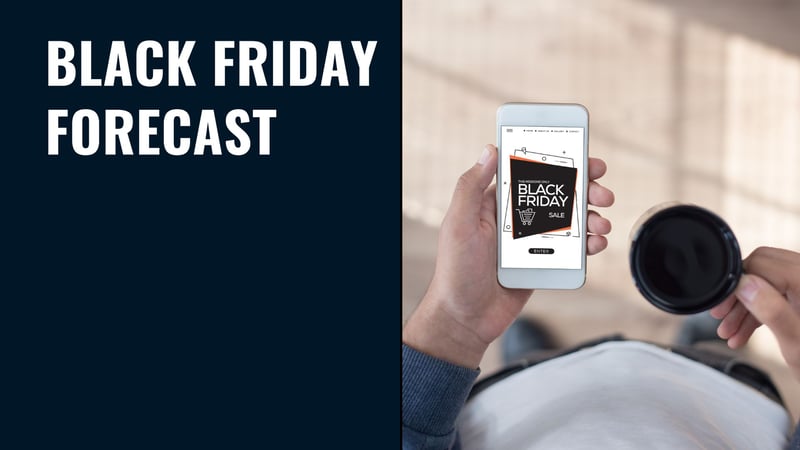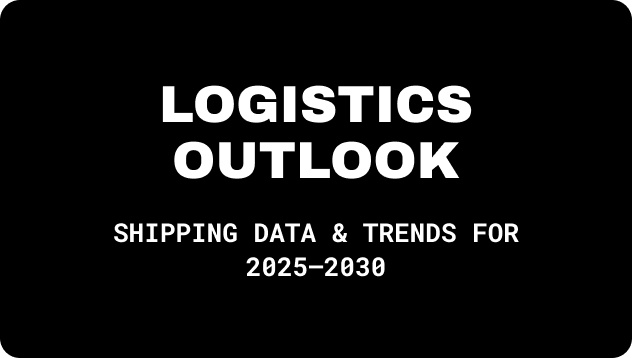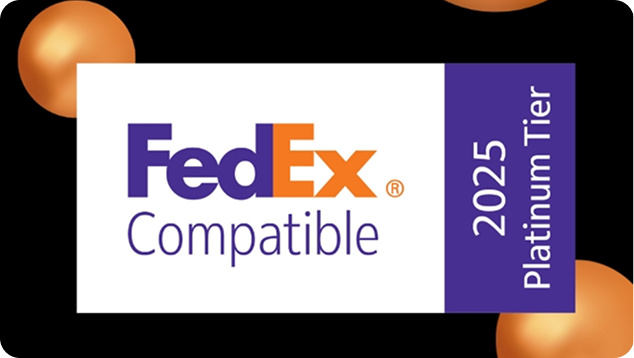Black Friday 2024: statistics, trends, and predictions

Black Friday (and Cyber Monday) are two of the biggest shopping days of the year. In the run-up to Christmas, millions of people wait to buy their presents over this one weekend in November, as many retailers attempt to out-compete each other with special deals and low prices. So as with Black Friday on the horizon, what can we expect for 2024?
What are Black Friday & Cyber Monday and why do they matter?
Black Friday and Cyber Monday are the annual shopping events that kick off the Christmas shopping season. Black Friday, which takes place the day after the American holiday Thanksgiving, is marked by in-store discounts and online deals. It traditionally attracts large crowds to brick-and-mortar stores all over the world.
Cyber Monday happens on the Monday after Black Friday and emphasises online sales. Retailers use those days to offer significant discounts on their websites. The goal of both events is to boost retail sales, with consumers seeking bargains on a wide range of products. Over the years, the distinction between the two has blurred as online shopping has become increasingly prevalent. The 5 days between Thanksgiving and Cyber Monday is sometimes referred to as Cyber Week.
Key statistics from past Black Fridays
Key Statistics from Black Friday 2022
The 2022 Black Friday/Cyber Monday weekend saw a 2.9% rise as shoppers returned to stores in their millions following the turbulent pandemic in 2020 and 2021. Around 196.7 million Americans shopped in both brick-and-mortar stores and online during the five-day shopping period between Thanksgiving and Cyber Monday — 17 million more than in 2021.
Despite Europeans and Brits not celebrating Thanksgiving, Black Friday has made its way across the pond. Total UK sales during Black Friday 2022 reached an estimated £12.3 billion, up 8.3% year-on-year. The prevailing theory is that as the cost of living rises, more consumers want to take advantage of any opportunity to save money. This means that shoppers are planning their Black Friday savings strategy weeks in advance to find the best deals.
As usual, the most popular shopping categories in the UK in 2022 were clothing and footwear, electricals, and toys. The world’s largest online retailer Amazon had one of its biggest shopping days ever in 2022, with their top selling products mainly being electronics such as the Echo Dot, Fire TV Stick and Apple AirPods. Independent retailers selling through Amazon also saw total sales topping $1 billion across the four days. In the US, Cyber Monday was driven by toys which were up a massive 684% compared to an average day in October 2022. Popular purchases included Pokemon cards, Hotwheels, Lego and game consoles. Overall best-selling products on Black Friday 2022 were the Kasa Smart Plug, All-Clad HA1 Nonstick Fry Pan Set, iRobot Roomba and 9th Gen Apple iPad.
E-commerce spending during Cyber Monday and Cyber Week was huge in 2022. Consumers spent a total of $35.3 billion over the week, up 4% year-on-year. This was bolstered by record online spending during Black Friday ($9.12 billion, up 2.3% YoY). However, it’s important to point out that the returns also increase following the Black Friday rush. 13% of all orders made during Cyber Week were returned, a 63% increase YoY.
While many shoppers still enjoy the more personalised experience that comes with shopping in brick-and-mortar stores over the Black Friday weekend, e-commerce saw a 21.6% increase in sales in 2022, making it the second-biggest online figure of all time. Cyber Monday is still the year’s biggest online shopping day, generating a whopping $11.3 billion in a single day in 2022.
Shopify also reported that 52 million consumers worldwide purchased from independent brands on the platform, a 12% increase from 2021. Top trending products from independent sellers were apparel & accessories, followed by health & beauty and home & garden.
Key Statistics from Black Friday 2023
Black Friday 2023 saw significant shifts in consumer behaviour and spending trends. With a 6.94% increase in e-commerce revenue compared to the previous year, despite economic challenges, shoppers clearly capitalised on the event to secure deals.
Online sales on Black Friday alone hit $9.8 billion, highlighting the continued importance of this shopping day. Interestingly, 25% of all November sales occurred during Cyber Weekend, indicating that consumers are strategically waiting for discounts. This extended sales period also began as early as mid-November, underscoring the evolving nature of Black Friday shopping.
7 Emerging Black Friday Trends in 2024
2024 is shaping up to be one of the biggest Black Friday weeks of all time. Here are a few consumer trends we may see as we head into Cyber Week.
Early shopping
Interestingly, the biggest emerging trend for 2024 is not what consumers are purchasing, but when. 63% of shoppers plan to commence their holiday shopping well in advance this year, even before Black Friday or Cyber Monday. This means that consumers are already hunting down the deals they want, so e-commerce brands need to communicate their plans with their customers. This is in complete contrast to the last-minute holiday rush a lot of retailers expect to see.
Bigger and better deals
Another emerging trend is tied to customer’s expectations. Consumers are expecting even bigger and better discounts from previous years — in some cases a minimum of 30% discount would be considered a good deal. One way e-commerce businesses can combat these high expectations while still turning a profit is to offer bundles and bulk orders to help increase the average order value while still being attractive to bargain hunters.
Smartphone purchases will dominate
Technology will also play an even bigger role in 2024. Purchases made using a smartphone are expected to skyrocket. Last year 51% of all online purchases were made on a mobile. As a result, mobile-specific marketing will be more prevalent, using terms like “tapping” instead of “clicking” in Black Friday campaigns. Traditional stores will also update their shopping apps to make it easier for customers to purchase products using their smartphones.
Social media will have an impact
As consumers begin their Christmas shopping earlier, online businesses also need to start communicating their deals well in advance Black Friday. 25% of consumers get their Black Friday information from social media, followed by 19% who go directly to the website. Businesses can offer exclusive deals, countdown timers or even early bird deals on their platforms to generate excitement. Influencer marketing strategies in the run-up to Black Friday are also a good way to generate buzz.
Sustainability and eco-conscious shopping
As more and more consumers are becoming aware of how their shopping habits impact the environment, more businesses can use Black Friday/Cyber Monday to communicate sustainability initiatives and promote eco-friendly products. It's a win-win for consumers and businesses and we will see more of it during Cyber Week 2024. What’s more, we may even see more anti-Black Friday campaigns, with businesses highlighting their global responsibility by not participating at all.
Increased technology
Technology will play a huge role in Black Friday 2024, with billions of dollars worth of transactions being made online and through apps. Retailers will leverage apps to send exclusive deals, and notifications and streamline the shopping experience for their customers. In the retail sector, the increased use of augmented reality (AR) applications allows consumers to virtually try on products, such as clothing or accessories, before making a purchase.
Easier contactless payments, live streaming and interactive content, hybrid shopping experiences and more dynamic pricing algorithms will all be employed so online retailers can both stay competitive and make the shopping experience as streamlined as possible.
More personalisation through AI and automation
We will also see the rise of a more personalised shopping experience. As businesses vye for customer’s attention, Artificial Intelligence (AI) algorithms can be implemented that can provide more personalised product recommendations based on user preferences and browsing history which will enhance the online shopping experience for bargain hunters on Black Friday. AI can also be used to communicate with consumers through chatbots and virtual assistants.
Keeping all these trends in mind, one thing is for certain — 2024 is going to be one the biggest Black Friday Cyber Monday weekends. With customers expecting even bigger and better deals much earlier than planned, businesses will need to adapt their Black Friday Cyber Monday marketing strategy to make the most of this year’s biggest shopping week.
AI, social media and automation will all play a role in getting consumers to part with their cash over the weekend, and smartphone purchases are likely to reach new heights as online retailers make it easier than ever to make a purchase no matter where you are.
Emily Browne is a writer for ShippyPro who blends her passion for writing with an interest in all things e-commerce. Emily strives to make complex topics more digestible, proving that the world of logistics isn't as confusing as it sometimes feels! Her expertise in supply chain management, coupled with a knack for storytelling, helps readers navigate the complex world of e-commerce and shipping.











